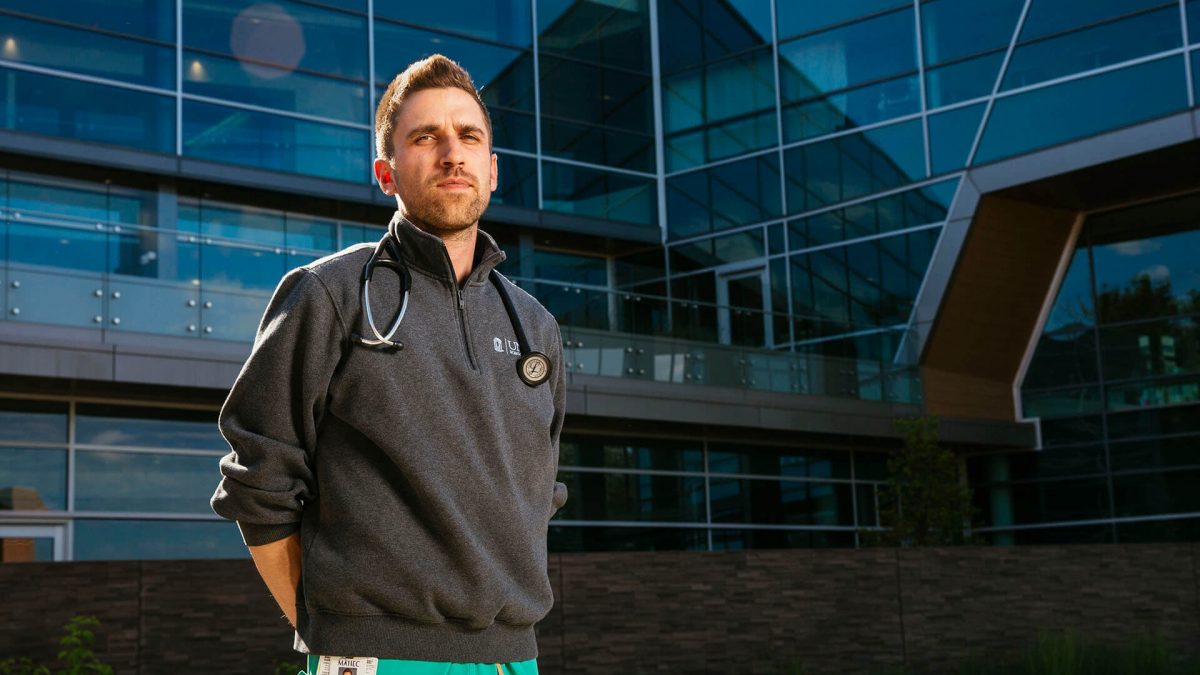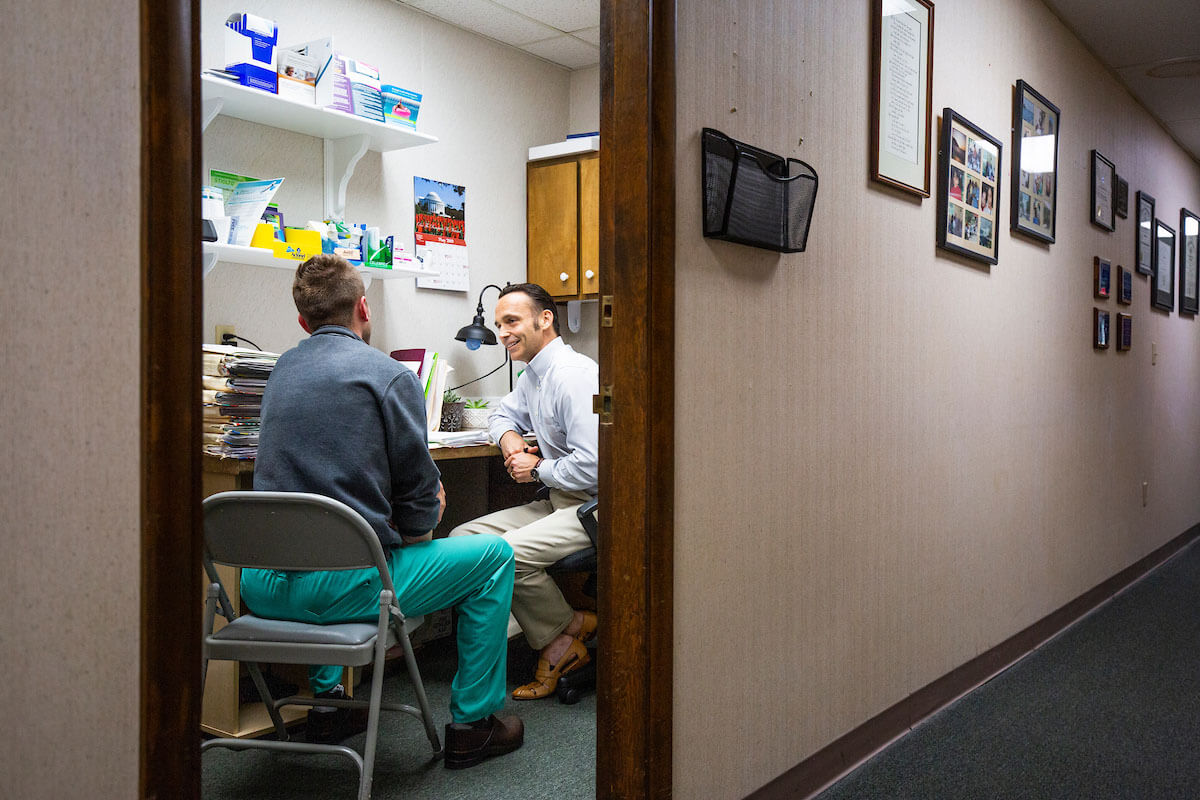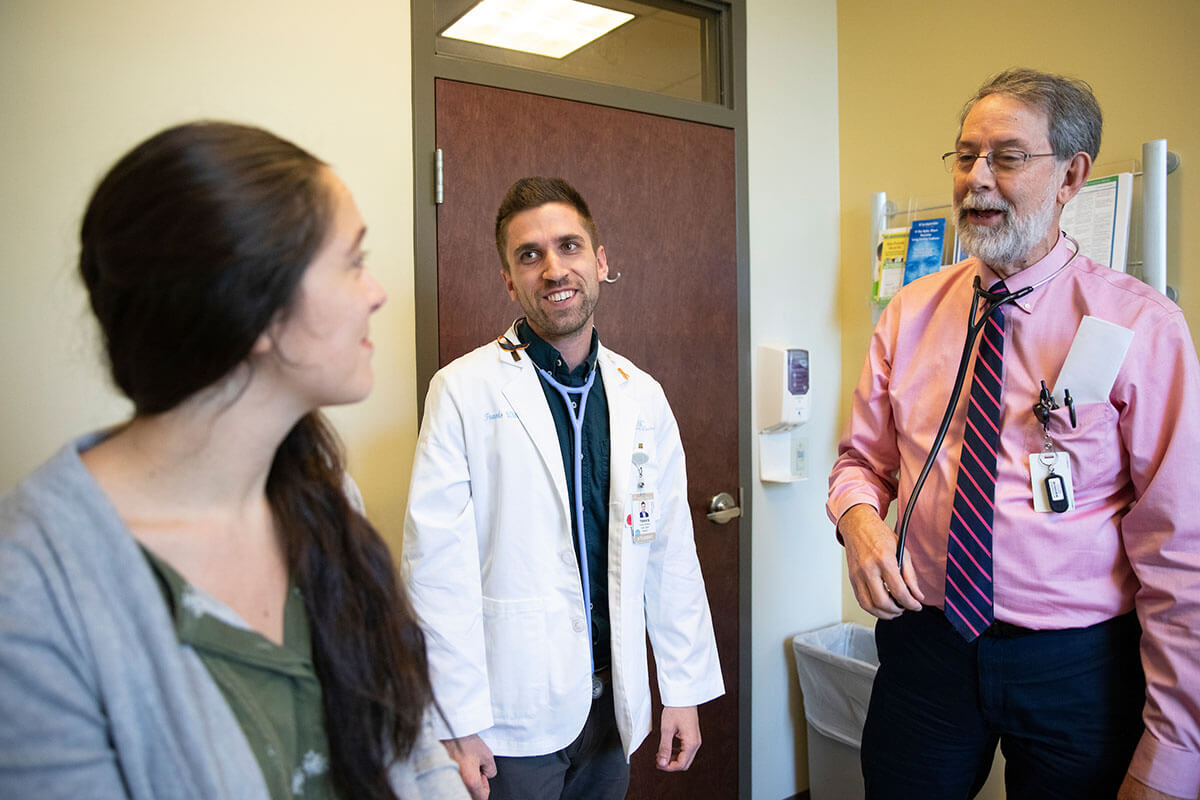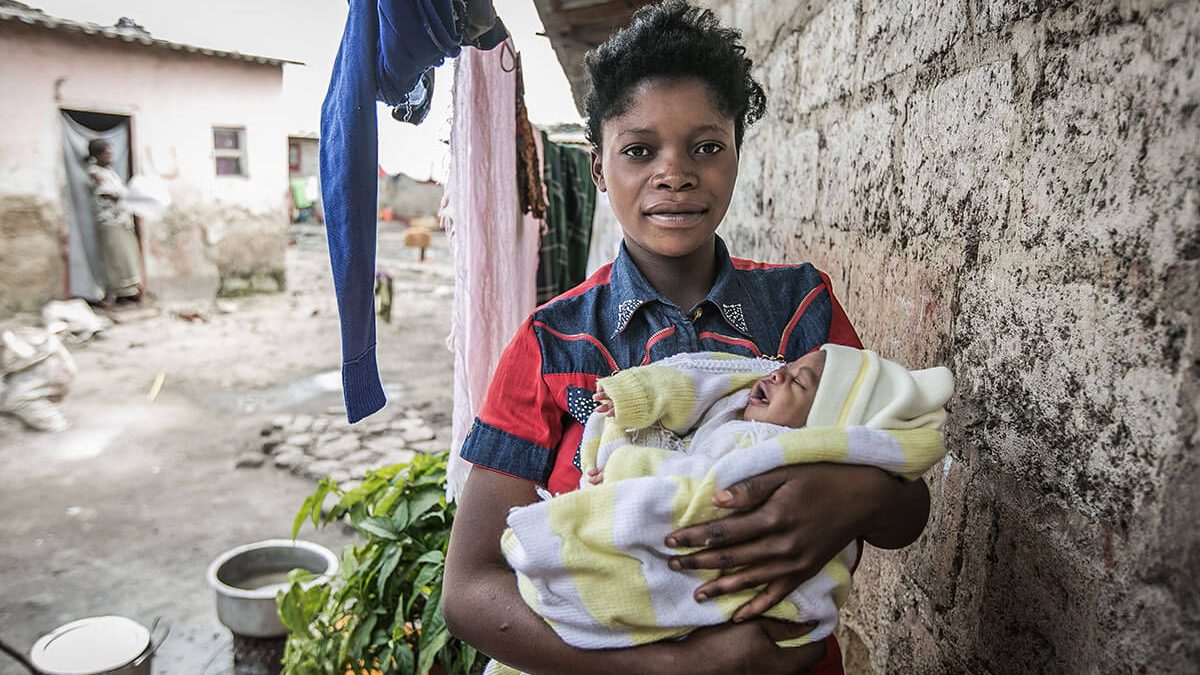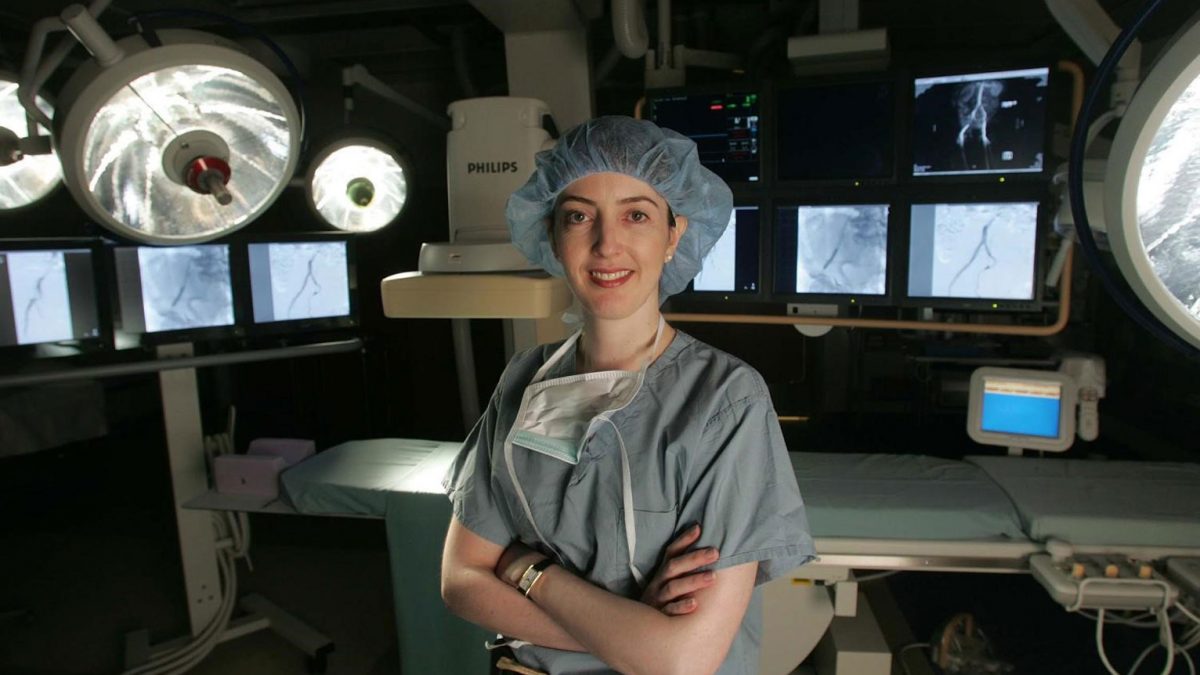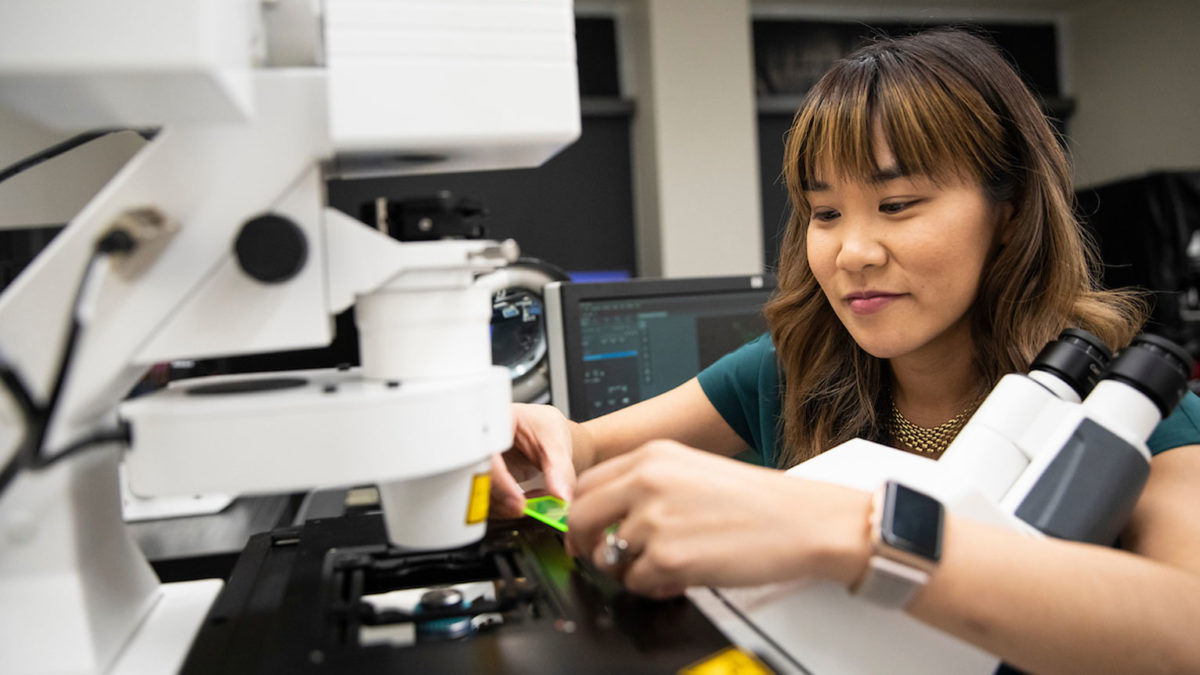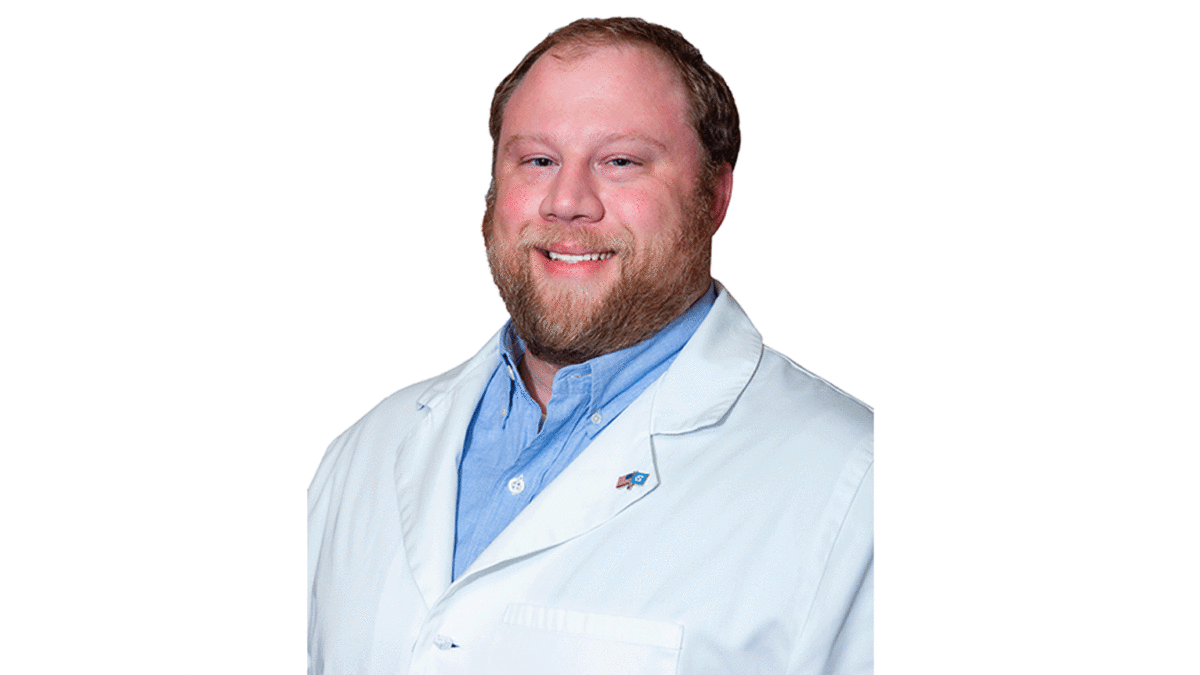For the clinical practice portion of the curriculum, Travis headed to MAHEC in Asheville, North Carolina. He spent four months in a hospital and eight months in outpatient clinics. Referred to as “longitudinal learning and care,” this division of practice emphasizes the value of getting to know patients over a longer duration of time while seeing them in a variety of health-care settings. It’s a great way to ensure medical students connect with their patients and feel what it’s like to be embedded in a rural community — all of which Travis experienced.
Patients started remembering when Travis would be in the clinic, and they would plan their follow-up appointments around his schedule.
“I started to see the same people, over and over, which is great — that’s what you’re going to be doing if you want to do outpatient medicine.”
Travis has also developed strong relationships with his preceptors — teaching physicians — as well. His mentors include Dr. Charlie Baker, a Carolina Medicine alumnus who oversaw Travis’s summer internship in Linville; Dr. Bryan Hodge, family medicine preceptor in Hendersonville; and Dr. Eric Byrd, internal medicine preceptor and a legend with his patients in Hendersonville. These physicians’ decades-long commitment to western North Carolina and passion for bringing medicine to underserved areas of the state solidified Travis’s picture of his future.
“I jumped on the chance to learn from those committed to small-town medicine, and I’ve been incredibly lucky to reap the rewards.”
Travis is now in his fourth year of medical school, which places him in the TEC curriculum’s final phase. While most of his classmates are returning to Chapel Hill for electives, research and interviews, Travis is staying in western North Carolina.
“I know that I want to do family medicine, and I know that I want to do rural. Everything I need is up here.”
